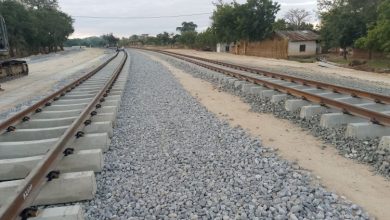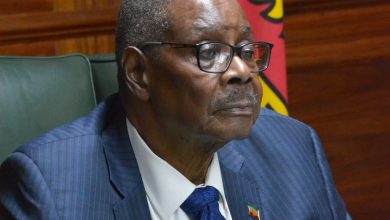Ex-inmate returns to Dedza Prison for good
A civil servant detained for reckless driving in May has returned to Dedza Prison to make life in confinement more entertaining and dignifying.
Ministry of Transport and Public Works gender officer Moses Mwalabu has donated a television, bawo games and a mirror worth K1.3 million to the correctional facility where he spent three days.
He urges individuals and organisations to help lessen the suffering of inmates in the country’s overcrowded prisons.
“I cherish the gift of giving even when I don’t have much,” he says. “Together, we can make life bearable for inmates in the country,” says Mwalabu.
Originally from Traditional Authority Chilikumwendo in Dedza District, Mwalabu grew up as a street connected person.
Living skint on the streets of Lilongwe, the capital city, motivated him to work hard in school to overturn his prospects. He now holds a degree from Lilongwe University of Agriculture and Natural Resources.
Mwalabu is the executive director of One Step Foundation which supports street-connected children, giving them a solid start and better prospects in life.

He also leads the Malawi Coalition for Kabaza Stakeholders Association (Makosa).
However, his return to Dedza Prison is a different story.
He narrates: “Life in congested prisons is never easy. From my three-day stay, I tasted the agony many people experience throughout their imprisonment.
“I developed empathy for the inmates and saw the need for support and prison reform.”.
The country’s prisons are notorious for overcrowding, poor sanitation, punitive diet and other human rights violations.
They house more than double the recommended population of inmates, the Prison Inspectorate reports.
Dedza Prison houses about 450 convicts and suspects waiting for trial, three times its capacity of 150.
In May this year, Mwalabu was locked up at the colonial facility in the shadow of Dedza Plateau, the country’s third tallest mountain.
He experienced firsthand common challenges inmates endure, including limited access to entertainment and basic needs.
However, he is concerned that suspects endure a long wait for justice and many of them are incarcerated for minor offenses that could be resolved with non-custodial sentences.
“I would like to see reforms that allow for the release of inmates with minor cases or those unable to pay fines. Additionally, lawmakers should consider empowering local chiefs to resolve minor cases at the village level to reduce prison congestion,” said Mwalabu.
A month after walking free, he implores lawyers of goodwill to support inmates with minor cases get an early release as part of prison reform.
Dedza Prison officer-in-charge Chimwemwe Shaba said some prisoners suffer from stress due to idleness.
“Malawi Prison Service has an open-door policy that allows different stakeholders to assist prisons. We need more well-wishers to complement our efforts and reforms,” he said.
Last week, President Lazarus Chakwera assented to the Correctional Services Bill, which replaces the outdated Prisons Act of 1956.
Parliament passed the law on April 3, ending a 12-year wait and hide-and-seek with human rights campaigners.
The colonial law partly normalised inhumane punishment and human rights violations which went on trial in 2009 when murder convict Gable Masangano successfully swayed the High Court to declare the current prison conditions “inhumane”.
Section 71 of the modernised law requires the Chief Commissioner of Prisons to ensure that inmates are held in cells that meet minimum standards and requirements for human dignity.
It also backs the court order for prison authorities to decongest correctional facilities and uphold inmates’ rights.
“This is not just a legislative win. It is a victory for humanity, dignity and justice for all,” said campaigner Victor Mhango shortly after the law reform got parliamentarians’ nod.
He called for full implementation, adequate resources and strict checks and balances to make the prisons reform meaningful on the ground.
Social commentator Latimu Matenje urges the prison service to swiftly cut overcrowding and introduce correctional measures required by law.
They include the introduction of community services and either temporary or permanent release of a prisoner before the expiry of a sentence.
However, Matenje urges the courts to cut the long wait for sentences





